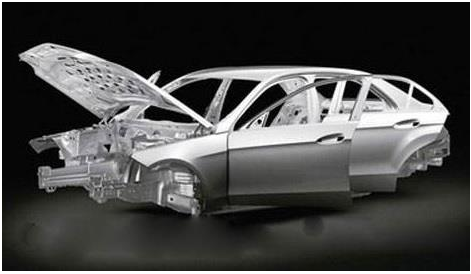Die casting is a manufacturing process that involves the production of metal parts by forcing molten metal into a mold cavity under high pressure. It is a technique that is widely used in the production of various industrial components, including engine parts, aircraft parts, and even toys. Die castings are known for their precision and accuracy, and the process involves a high degree of skill and expertise.
The process of die casting begins with the creation of a mold. This is typically made of two steel plates, which are machined to form the shape of the desired part. Once the mold is complete, it is heated to a high temperature to prepare it for the casting process. The molten metal is then injected into the mold cavity under high pressure, which fills the cavity and creates the desired part.
One of the key advantages of die casting is its ability to produce parts with a high degree of precision and accuracy. This is due to the fact that the process allows for the creation of complex shapes with tight tolerances. It also allows for the production of large quantities of parts in a relatively short amount of time, making it ideal for mass production.
There are several types of materials that can be used in die casting, including aluminum, zinc, magnesium, and copper. Each material has its own unique properties, and the choice of material will depend on the specific requirements of the part being produced. For example, aluminum is often used in the production of automotive parts due to its lightweight and corrosion-resistant properties.
In addition to its precision and accuracy, die casting is also a cost-effective manufacturing process. This is because it allows for the production of large quantities of parts with minimal waste, reducing the overall cost of production. It also requires less machining than other manufacturing processes, further reducing costs.

Despite its many advantages, die casting does have some limitations. For example, it is not suitable for the production of very large or very thick parts. It is also not ideal for the production of parts with intricate internal features, as these can be difficult to produce with the die casting process.
In conclusion, die casting is a precision art that requires a high degree of skill and expertise. It offers numerous advantages, including precision, accuracy, cost-effectiveness, and the ability to produce large quantities of parts in a short amount of time. While it has its limitations, it remains a popular manufacturing process for a wide range of industrial components.
-

- Magnesium alloy die-casting Auto parts Side step Running board
-

- Magnesíum álfelgur þikómótandi deyja-steypu UAV hlutar
-

- Hár nákvæmni magnesíumblendi steypuhlutar fyrir kveikjulás fyrir bíla
-

- Steyptu magnesíumhlutar hlíf fyrir fartölvuhús D
-

- Thixomolding parts & components mobile phone middle board processed
-

- Magnesíumblendi steypuhlutar reiðhjólagrind CNC vinnsla og yfirborðsfrágangur

 0086-750-5616188
0086-750-5616188 +86 13392089688
+86 13392089688 sales@zhongmei-tech.com
sales@zhongmei-tech.com







